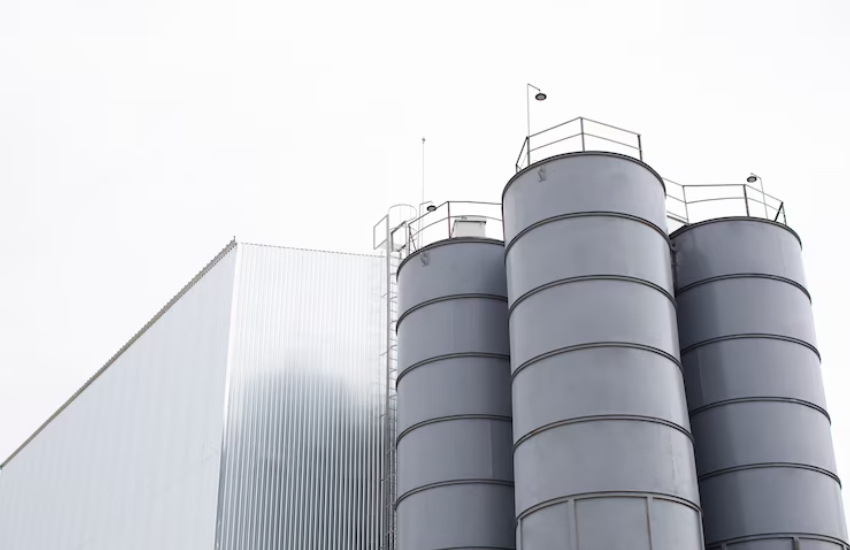Because the UK transitions towards low-carbon vitality options, bio gas has emerged as a compelling different to standard fossil fuels. It’s renewable, cleaner-burning, and more and more out there. However regardless of its many environmental advantages, bio gas isn’t with out its storage complexities—particularly in a rustic like the UK, the place climate and humidity can shift dramatically in brief durations.
Whether or not you are a rural house owner, a business gas person, or a part of the agricultural sector, understanding easy methods to retailer bio gas successfully in UK climates is important for sustaining gas high quality, avoiding system points, and staying compliant with environmental rules.
What Makes Bio Fuel Storage Completely different in the UK?
Bio gas—reminiscent of biodiesel, HVO (Hydrotreated Vegetable Oil), or blended fuels—accommodates natural supplies which can be way more delicate to environmental components than conventional fuels like diesel or kerosene. The UK’s local weather, recognized for its humidity, fluctuating temperatures, and rainfall, makes improper storage a significant threat for degradation.
Key points that bio gas customers face in the UK embrace:
- Water contamination from condensation or rainfall
- Chilly temperatures inflicting gas gelling or thickening
- Microbial progress inspired by damp, stagnant circumstances
- Authorized restrictions round environmental security and spill prevention
All of this underscores one reality: for those who’re storing bio gas in the UK, it’s not nearly having a tank—it’s about having the proper storage technique.
1. Use Bunded Storage Tanks as Customary
Within the UK, bunded tanks aren’t simply really helpful—they’re typically required, significantly in business or agricultural settings.
A bunded tank consists of an inside tank (which holds the gas) and an outer tank (the bund) that may seize spills or leaks. This dual-layer construction protects the encompassing setting and helps maintain you compliant with UK oil storage rules.
Greatest practices:
- Select metal or UV-stabilised plastic tanks to deal with out of doors circumstances.
- Make sure the bund can maintain 110% of the tank’s capability.
- Set up tanks on impermeable bases with sufficient drainage away from buildings or water sources.
2. Handle Moisture and Condensation Dangers
Moisture is the enemy of bio gas. UK climates—with frequent rain and chilly nights—make tanks susceptible to condensation buildup, which may combine with gas and result in microbial progress or gas separation.
To fight moisture intrusion:
- Hold tanks as full as doable, particularly throughout colder months, to cut back airspace the place condensation can kind.
- Use desiccant filters or moisture-absorbing vent methods.
- Set up weather-tight caps and seals to maintain out rainwater.
For these storing bio gas long-term, take into account including a water detection system on the base of the tank.
3. Monitor and Management Temperature Fluctuations
Bio gas can thicken and even gel in low temperatures—significantly a difficulty throughout UK winters in rural or northern areas. This will clog filters, harm engines, or render heating methods ineffective.
Options embrace:
- Insulated tanks or tank jackets for out of doors storage
- Heated gas strains or tank heating methods for extraordinarily chilly areas
- Positioning tanks in sheltered or south-facing areas to profit from daylight
Moreover, gas components or anti-gel therapies may also help keep efficiency throughout colder months.
4. Hold It Clear: Keep away from Contamination and Sludge
Over time, bio gas in storage can degrade as a consequence of oxidation, microbial contamination, or grime infiltration. Poorly maintained tanks typically develop sludge or residue that impacts system efficiency.
To stop this:
- Filter gas throughout switch or when allotting
- Add stabilisers or biocides to cut back microbial progress
- Examine tanks often for sediment buildup or discolouration
- Clear tanks yearly if storing bio gas long-term
5. Perceive and Observe Authorized Requirements
Within the UK, storing bio gas (like all liquid fuels) requires compliance with a number of environmental legal guidelines and tips, together with:
- The Management of Air pollution (Oil Storage) Rules
- Constructing Rules (Half J for England and Wales)
- DEFRA and Setting Company steerage
Relying on the amount saved and site (home, farm, or business), chances are you’ll be required to:
- Have bunded tanks
- Hold gas away from water sources
- Set up spill response methods or boundaries
- Label tanks clearly with gas kind and hazards
Failing to fulfill these requirements may end up in fines or environmental penalties.
6. Plan for Common Inspection and Upkeep
A proactive method is essential to preserving your bio gas usable and secure over time. Whatever the gas kind, carry out these checks routinely:
- Examine tank partitions and joints for cracks, leaks, or rust
- Take a look at gas for water, microbial contamination, or cloudiness
- Clear filters and valves often
- Keep a file of inspections and servicing
Many UK suppliers provide upkeep plans or on-site tank cleansing companies—these may be invaluable for those who retailer giant volumes or depend on bio gas year-round.
Conclusion: Retailer Good, Fuel Higher
Bio gas is a brilliant and sustainable vitality alternative—however solely when saved appropriately. With the UK’s unpredictable climate, damp winters, and tightening environmental legal guidelines, it’s important totake bio fuel storage significantly. The correct tank, cautious placement, and common upkeep could make the distinction between gas that performs and gas that causes issues.
Whether or not you are heating your property, powering tools, or fueling your farm, adopting correct storage practices will make sure you get the most effective out of each drop—safely, legally, and effectively.




